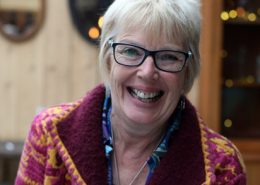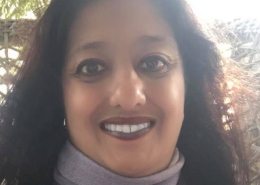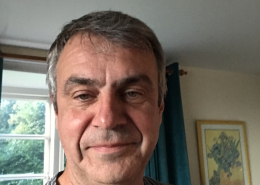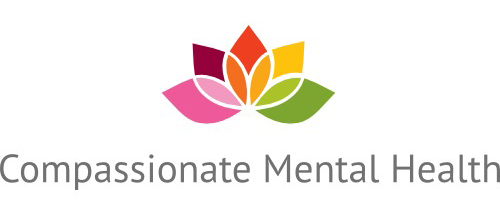Speakers

Elisabeth Svanholmer
Danish Hearing Voices Network trainer and facilitator who uses her own experiences of living with voices and other unusual experiences to help others more…

Jonny Benjamin
Award-winning mental health campaigner, film producer, public speaker, writer and vlogger, widely known for his 2014 social media campaign to #findMike more…

Dr Florian Ruths
Consultant psychiatrist, mindfulness teacher and cognitive therapist, leading the Maudsley Mindfulness Service at the Maudsley Hospital in London for the last 10 years more…

Dr Charlie Heriot-Maitland
Clinical psychologist, researcher, and trainer who integrates different therapeutic approaches, in particular compassion-focused therapy (CFT) more…

Dr Sue Ruben
Consultant psychiatrist who has worked in both General Adult Psychiatry and Addictions in North Wales and Liverpool. Sue is known for her humour and inclusive, open-hearted approach more…

Malcolm Stern
Group psychotherapist, author and father bereaved by suicide more…

Neelam Khawani-Connett
Neelam is a lived experience practitioner, with personal experience of a personality disorder diagnosis and the healing power of therapeutic community more…

Elaine Paton
Conceptual theatre director, performer and writer who challenges the stigma and shame that still surrounds being mentally unwell more…

Dr Tom Stockmann
Psychiatrist and Training Mentor of Peer-supported Open Dialogue (POD). Tom is a member of the innovative NELFT Dialogue First team, which provides UK-wide Open Dialogue-inspired care. more…

Chris Salway
Consultant Psychiatrist, former GP and psychedelic researcher more…

Nadine Denneth
Founder and Director of N.ableD - passionate about waking people up to the ways we can help ourselves stay well. Nadine supported her father in his journey with bipolar and dementia, and is now using that experience to empower others more…
Programme
| 8.30 – 9.00 | Optional Early arrival and meditation | |
| 9.00 – 9.15 | Register / Meet & Greet | |
| 9.15 – 9.20 | Welcome and Introductions | Sarah Stone – Director of Samaritans in Wales |
| 9.20 – 9.35 | Slaying our Dragons with Compassion | Malcolm Stern |
| 9.35 – 10.00 | Journey of Hope and Recovery | Johnny Benjamin |
| 10.00- 10.30 | Making Friends with Difficult Mind States | Rufus May and Elisabeth Swanholmer |
| 10.30 – 11.10 | Group Gatherings | Hosted Conversations facilitated by Malcolm Stern followed by opportunity to feedback |
| 11.10 – 11.30 | Pause & Refresh | |
| 11.30 – 11.45 | On being Human | Dr Florian Ruths |
| 11.45 – 1.00 | Choice of Experiential Workshops | |
| A | Telling our Stories | Malcolm Stern |
| B | Introduction to Compassion Focused Therapy | Dr Charlie Heriot-Maitland |
| C | Introduction to Open Dialogue | Chris Salway, Joanne Tudball and Tom Stockmann |
| D | Connecting with the body’s resources | Rufus May and Elisabeth Swanholmer |
| 1.00- 2.00 | Eat and Enjoy | |
| 2.00 – 2.15 | A Creative Response to Suicide | Elaine Paton |
| 2.15 – 2.30 | The Science of Compassion | Dr Charlie Heriot-Maitland |
| 2.30 – 3.45 | Choice of Workshops | |
| E | Telling Our Stories | Malcolm Stern |
| F | Introduction to Open Dialogue | Chris Salway, Joanne Tudball and Tom Stockmann |
| G | Connecting with the body’s resources | Rufus May and Elisabeth Swanholmer |
| H | Introduction to Compassion Focused Therapy | Dr Charlie Heriot-Maitland |
| I | Introduction to Mindfulness | Dr Florian Ruths |
| 3.45 – 4.05 | Pause & Refresh | |
| 4.05 – 4.20 | Waking up to the reality of living well | Nadine Denneth |
| 4.20 – 4.35 | Dr Sue Ruben | In conversation with Malcolm Stern |
| 4.35 – 4.50 | Open Dialogue and Case for Compassionate Psychiatry | Tom Stockmann, Chris Salway and Joanne Tudman |
| 4.50 – 5.25 | Concluding Reflections and Sharings | Chaired by Sarah Stone |
| 5.25 – 5.30 | Goodbye and Thanks | Sarah Stone – Director of Samaritans in Wales |



